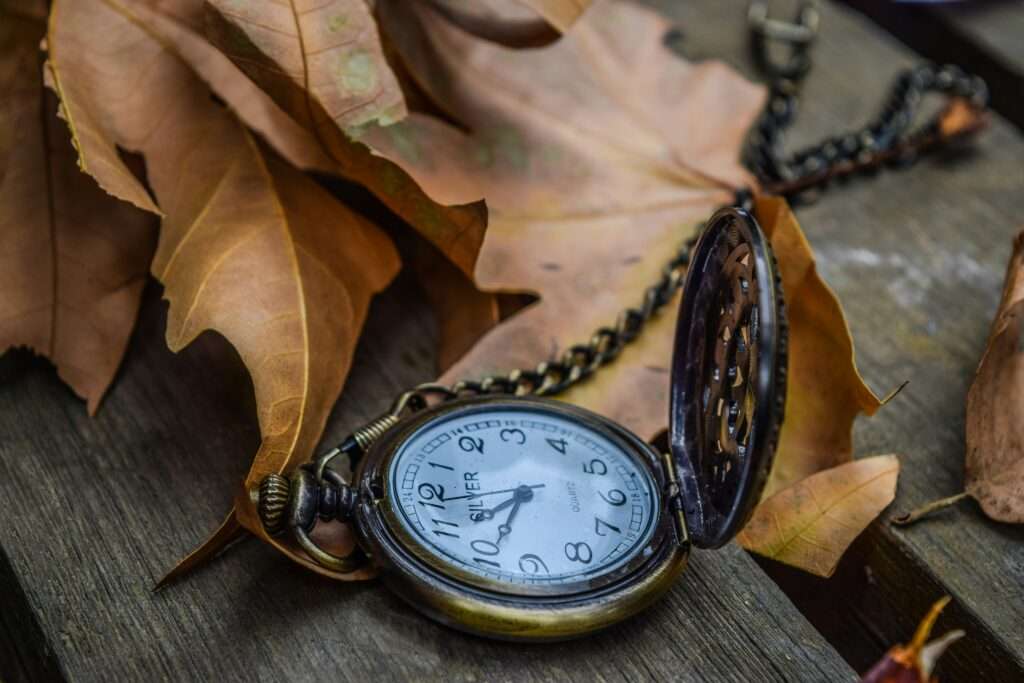How does nostalgia improve your intrapersonal relationship?

How does nostalgia improve your relationship with yourself?
Self, Love, and Self-love; did you ever struggle with balancing them all?
The definitions of terms related to oneself are trapped in a net of complexities. They’re hard to define and harder to achieve.
There’s no surefire way to achieve a balance between them all.
But there’s always a way.
Love is one such complex yet the greatest part of our lives — the greatest part that’s real and abstract at the same time. Khalil Gibran, for example, once noted,
“Demonstrations of love are small, compared with the greatest thing that is hidden behind them.”
Self-love is even more opaque.
We need time, understanding, and compassion and God knows how to love someone’s parts which include the versions of someone we did not expect suddenly. (To put it in Atticus’s words: “People like diamonds become less perfect the closer you get. The trick is to not forget how they shine.”)
Thus, we need even more time to unconditionally love people (and our own selves, which, at times, is the last thing on our minds).
But, self-love is a lifelong journey.
Usually, your boundaries with yourself, regardless of how they are with the world outside of you, are fragile.
Thus, our self-love, the essence of healthy relationships, remains complicated and slippery.
The connection between self-love and nostalgia
Nostalgia is as abstract as self-love. It stirs senses, memories, and feelings from one’s former self and experiences. And just like self-love, it remains a tricky business, especially as our understanding of it evolves with time.
By the 1800s, nostalgia was considered a symptom of depression. It took more than one and a half-century to learn the distinction between its healthy and depressive forms.
Now it is mostly considered as a positive emotion despite its (poor) historical reputation. Its bittersweet nature, in essence, depends upon your past experiences and triggers distress when you dwell on memories for a long while.
The research on nostalgia is far from settled and is constantly evolving but by and by the controlled (nostalgic) whirlpool of memories we glimpse is acknowledged as a healthy emotion.
Nostalgic techniques, for example, are constantly used to trigger an emotional reaction in the audience (that’s already in one’s background) in marketing, designing, politics, and even in writing.
Cornelia Funke, the creator of a world for lovers of books and words, noted in her Inkheart Trilogy:
“Isn’t it odd how much fatter a book gets when you’ve read it several times?” Mo had said…”As if something were left between the pages every time you read it. Feelings, thoughts, sounds, smells…and then, when you look at the book again many years later, you find yourself there, too, a slightly younger self, slightly different, as if the book had preserved you like a pressed flower…both strange and familiar.”
― Cornelia Funke, Inkspell
For book lovers, this is the book.
Travelers see this is their physical happy place.
Researchers find it in the home to their debut research work.
For learners, it is the piece of advice that starts lacing their journey with differentness.
And, the list would go on (of course, promising a greater probability of boredom).
But, my point is: the world is taking advantage of its pure offerings.
Let’s see what it has to offer us for the world inside of us.
Here come the shadows of nostalgia again…
Autumn is a nostalgic season and as a confirmed introvert, sometimes there is not much of an option for me other than entertaining the reflective thoughts. The irony of this experience is, I feel more productive and refreshed in Autumn. It seems as if somehow the puzzle gets a connection.
Now, I’m sure you’ll agree that:
None of us has figured out all about life and the world. Of course, we cannot.
But, you might attest that we all have blueprints of a seemingly obscure road in our memories — in our hearts, somewhere in the background of where we stand today.
Even though the past is beyond our reach it still has a way to guide us.
Elisabeth Kubler-Ross, a pioneer in near-death research and the giver of countless life lessons, once said,
“Learn to get in touch with the silence within yourself, and know that everything in life has a purpose. There are no mistakes, no coincidences, all events are blessings given to us to learn from.”
You see?
The experience that we have had was needed for we needed some lessons.
Those lessons were brought forth by the things we had endured.
And, to get most of what we have been through, I’m sure it’s needless to say how important looking (consciously) back is.
(Not to dwell, but to learn though.)

3 Reasons nostalgia offers you a chance to practice self-love
3 Reasons nostalgia offers you a chance to practice self-love
Let’s get back to the connection between self-love and nostalgia.
As I’m sure you’re aware, self-love begs for a deep connection and unconditional acceptance of oneself.
Well, what nostalgia has got to do with it?
Let’s put how nostalgia revivifies the relationship in order.
1. Balance in self-love
Self-love can be an elusive and slippery thing, as I said above. That can be challenging to define.
Whenever life takes a new turn, for example, the definition of self-love demands a shift in its course. So, its definition evolves with time.
Yet, remember: the essence is the same.
As you navigate through life, various emotions cross your path and engender emotions accordingly.
While filtering constructive criticism and dodging unfair remarks, it becomes easy to lose sight of our own needs.
We might put our core needs (such as a healthy dose of self-compassion, acceptance of who we are, our real calling, the message to be learned from comparison, etc.) on the backside without even knowing it.
We might lose the connection with our inner being.
Nostalgia, though tricky to navigate through, can help us find a balance by accepting the imperfect parts of our stories (in the case of sad memories) and revisiting life (the happier moments).
For example, my most cherished experience in 2023 for me had been interning as a research writer for a publication.
The journey, as of any writer in a previously lesser-known niche, was not linear. I had been literally scratching my head (to use Lemony Snicket’s phrasing) because of the speed with which deadlines would chase me.
There are two sides to my story: an overall and a deep side.
An overall side makes me blindly love that phase of my life. A deep side reminds me of the nights when I struggled to find the pertinent information and conceptually summarize it. The nights I was hit by creative block, and had no interest left in what I was supposed to be doing.
Yet, the deeper look also reminds me: There was always a way.
An intuitive gush, a stroke of luck, an omen from God’s universe, or a payback by the universe. No matter what the way was, I always found a way.
Thus, we must remember: Nostalgia is not a place to dwell or mourn.
It’s just a place you visit (whatever you name it), but you must remember the promises with the future that you’ve got to keep.
So, in conscious nostalgic rounds, we experience a deep connection and unconditional acceptance because memories are all we have.
By
❤acknowledging our experiences,
❤their impact on the present,
❤their need for the completion of our present and future selves,
we can embrace our true, authentic selves and revive our relationship with ourselves.
2. A needed lesson breathing in memories
In his book, The Past is a Foreign Country, author David Lowenthal noted,
“Memories are not ready-made reflections of the past, but eclectic, selective reconstructions based on subsequent actions and perceptions and on ever-changing codes by which we delineate, symbolize, and classify the world around us.”
This selective reconstruction, as the author puts it, can present an incomplete picture of a past event based on one’s perception and emotional state.
Likely so, nostalgia is tied to our emotional state, often focusing on particular moments while disregarding the complexities of the overall experience.
Am I getting the point across?
I, for example, while thinking about a writing workshop I enrolled in, remember the inspiration oozing from my experience out there. Even on the days when I wasn’t motivated to write, the discussion and feedback prompted me to. However, my vivid emotional memory is based on a partial and not on the overall situation.
In other words, I’m implying the fact that the mere overall happiness of that journey is clouding the frustrations that I did face out there. Since, it wasn’t easy to manage writing lectures, practice, and other errands simultaneously, the journey had rocky parts as well. Which the overall positive experience feeling is happily overlooking.
Here’s the thing.
The same happens when you dwell in negative memories — we only remember the misunderstandings and chaos in a particular relationship after it ends — not acknowledging that between those moments we still had little joyous moments.
In other words,
“Every rose has a throne, and every half-empty glass is half-full as well. Sometimes we overlook the thrones because of their obvious beauty. At other times, we overlook the full part of the glass wallowing in the misery of being left with just the half left.”
On the sunny side, if we consider both sides of the story, we see how the balance in life continues despite all its happenings.
You will understand how nostalgia is related here.
The hope gleaming in memories mostly fills our lives with pleasure and faith in a better future. The negative part mostly reminds lessons we need, by considering both the positive and negative aspects of our memories, we can appreciate the balance in life and what life holds.
Thus, the beckoning to the familiar past — the nostalgia — encourages us to experience these lessons and the life within to the fullest.
3. The needed change in emotions
Heraclius once said, “Change is the only constant in life.” And our lives are a living manifestation of this change. The imperfect world of ours is beautiful and change makes it so.
Just as the day transitions into night, our lives are constantly evolving. We never really get bored of both.
The point is, that this change makes lives worth living.
Nostalgia brings a change in emotions. When we handle these emotions, we feel the change.
We recall the past because it is incredibly easy to recall an emotion we’ve felt rather than create a new emotion. By embracing these emotions and navigating through them, we experience personal growth and find meaning in life experiences through much-needed shifts in emotions.
Key Takeaway
Staying connected with our past and finding significance in life experiences is crucial. Nostalgia offers a chance to explore these complex emotions, fostering a deeper connection with ourselves igniting a sense of hope, and gleaning lessons for the future.
“Let us not look back in anger, nor forward in fear, but around in awareness.” James Thurber.
Thanks for reading! You may like to visit my tech blog here.